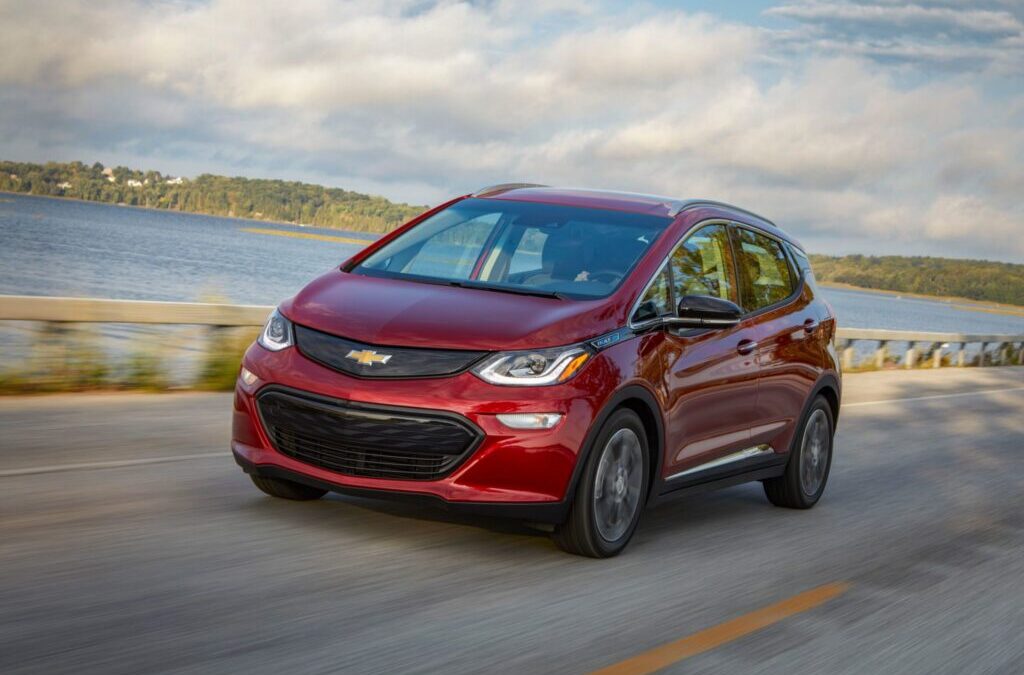
Is owning an electric vehicle worth it?
EVs have come along away, with significant improvements in range, performance and options over the last years. Overall, EVs seem to be more comfortable and provide a better driving experience. Owning an EV is cheaper when it comes to maintenance, fuel, and insurance. More government subsidies are needed to incentivize adoption in key areas.
In this article, we will go over all of the market options available for consumers today and the various aspects of owning an electric vehicle (EV) including the environmental impacts. We will also compare the costs of owning an EV versus a gasoline powered model using a combination of own and online calculator tools available to consumers. Namely, we will compare the 2020 Chevrolet Bolt EV to its gasoline equivalent, the 2020 Chevrolet Spark.
EVs, hybrids, and plug-in hybrid electric vehicles (PHEV) are variations of battery-based vehicles offered in Canada and globally. A typical price range for non-luxury EVs in Canada is $38-45k. There have been significant improvements in affordability and in battery technology, leading to increase in driving range of EVs. In 2015, the battery represented about 57% of the cost, 33% in 2019 and is forecasted to be at 20% by 2025, according to Bloomberg NEF.
Adoption has been slowly increasing in Canada. In 2019 EVs represented 1.6% of new registration compared to 0.2% in 2015. Approximately, 95% of all registered EVs in Canada are in Quebec, Ontario, and British Columbia. Most EVs in Canada are registered in regions with current or previous rebate programs. The Canadian government had set targets for zero-emission vehicles (ZEV) reaching 10% of light-duty vehicles (LDV) sales per year by 2025, 30% by 2030, and 100% by 2040. Quebec for example has an EV policy mandate which requires automakers to set EV sales targets.
Under the federal Zero-Emission Vehicles (ZEV) program, battery-electric, hydrogen fuel cell, and longer-range plug-in hybrid vehicles are eligible for an incentive of $5,000 towards leasing or purchasing ( list of eligible ZEV ) a. British Columbia and Quebec are the only provinces that offer $5,000 and $8,000 in rebates respectively in addition to the $5,000 federal rebate.
Below is a select list of the cheapest EVs in Canada and their associated ranges. Notice that all vehicles are under the $45,000 MSRP mark, which is a generally accepted maximum for non-luxury EVs in the market today.
Sub-compact Electric Vehicles (EVs) Comparison (2020 Models)
| Vehicle | Base Price | Base Range | Battery Capacity | Warranty |
| Volkswagen e-Golf | $37,895 | 198 KM | 35.8 kWh | 4 yr/80,000 basic |
| Nissan Leaf | $44,298 | 243 KM | 40 kWh | 3 yr/60,000 km Basic |
| Chevrolet Bolt | $44,998 | 417 KM | 60 kwh | 3-year/60,000 km Basic |
| Tesla Model 3 | $44,999 | 402 KM | 75 Kwh | 4 yr/80,000 km Basic |
The 2020 Chevrolet Bolt offers more range than its competitors while offering great electrical efficiency as shown by the range and battery capacity. The Bolt is also one of the most award winning EVs in the market today, winning two Motor Trend Car of the Year awards, and continues to rank high among EV enthusiasts for its superior road performance.
Are EVs practical?
For most drivers, the deciding factor for when buying an electric car is the type of usage. If you mainly use your car for short and urban like commutes, and there is sufficient access to chargers at both ends of your trip, owning an EV is a good fit for you. However, drivers need to plan carefully, as battery charging time can be very long depending on the type of charging stations you have access to.
There are perks to driving an EV depending on where you live. You may be able to drive in the carpool lane on the highway without having to carry additional riders, get free street-parking, and reserved spots in municipal and/or airport parking lots. Range anxiety is no longer an issue for EVs, thanks to rapid improvements in technology.
There are a ton of misconceptions around range anxiety associated with EVs, and it has had a detrimental effect on adoption. Range anxiety is the fear of not being able to drive very far. For the vehicles we have shown above, range anxiety is clearly not an issue, since new EVs can go between 200 and 500 kilometers on a single charge. According to Helen Boroadbent, a post-graduate researcher in EVs at the University of NSW, 60KMs is enough range for about 80% of day-to-day driving, while a 170KM range is sufficient for 99% of driving trips.
Another factor contributing to range anxiety is the charging time. Depending on the level of charging you are using, charging time can range between 30 mins and 8 hours for a full charge. This also depends on battery and charging capacity of an EV. The levels of charging are discussed at a later section of this article.
Access to localized and visible charging infrastructure is key to alleviate consumer concerns about the availability of charging stations for their vehicles. As EVs become more popular, the availability of EV charging stations increases. Even if EVs are relatively common where you live, there is still a legitimate concern about the availability of infrastructure when traveling on long road trips. Part of the solution is for governments to invest more in EV infrastructure both in communities and in major corridors. To deal with this issue, the federal government announced through Budget 2019 that it will spend $130 million over five years to deploy a network of zero-emission vehicle charging stations (level 2 and higher) across the country.
How well does an EV perform?
By most measures, today’s EVs offer a similar driving experience to gasoline-powered vehicles, if not better. Overall, EVs have faster acceleration, better handling, more powerful braking systems and very quiet engines. All this points to a comfortable and smooth ride.
EVs are often at the top of their class in terms of crash and safety ratings. Since EVs have fewer components than traditional vehicles and thus, more space available, manufacturers are able to innovate in vehicle safety. Battery packs lower the center of gravity and result in a more rigid frame. Since EVs are powered by batteries as opposed to traditional gasoline powered engines, they are also less prone to fire. This is evident when comparing insurance costs between an EV and a comparable gasoline vehicle, which we demonstrate in a later section.
EVs require less service than gasoline-powered vehicles
In addition to fuel savings, EVs also require less maintenance. Since an EV is fully electric, changing oil, flushing the cooling system, servicing the transmission, changing air filter, spark plugs and drive belts are no longer required. EVs also have regenerative braking and resistive friction which means that breaks will not wear out as fast. This is also true for a lot of other major repairs associated with gas-powered engines due to additional mechanical components and parts.
The lithium-ion cells that power EV engines wear out over time and can be very costly to replace. Battery costs represent about 25% of overall vehicle price but the cost per kilowatt-hour continues to fall. According to the CAA however, battery prices fell by 80% between 2010-2016, suggesting that replacement costs have dropped significantly. However, you can can assume that the original battery will last for the lifetime of your vehicle. This is consistent with available evidence suggesting that EV battery degradation has not been a widespread problem.
EVs do not emit emissions, but the secondary impact can be seen in production and power supply
Owners choose EVs to help protect the environment. EVs have zero tailpipe emissions and the rechargeable battery in EVs means that all energy can be sourced domestically which reduces downstream emissions. However, other environmental costs must be considered. Most EV batteries are lithium-ion powered, which requires more energy to manufacture due to the mining and refining process. Lithium-ion batteries are produced in Japan and South Korea, where approximately 25%–40% of electricity generation is from coal. Recycling lithium-ion batteries remains inefficient and only a small share of the material is reusable. Another source of emissions in the production of EVs is the process of making high-performing metals which requires a relatively large amount of energy. The impact of this also depends on the manufacturing country of the vehicle, which could mean a large amount of GHGs emitted during the production process. The Union of Concerned Scientists USA has calculated that a longer-range lithium-ion EV that travels more than 250 miles per charge, creates an additional 6 tons of GHG emissions in the manufacturing process, or up to 68 percent more than a gasoline-powered vehicle.
Used EVs are also another and even more financially and environmentally sustainable way to go. Buying a used EV avoids any incremental environmental impact on your part when it comes to manufacturing EVs. Some vehicles with the inherent range limitations make great pre-owned electric cars since they are likely to have fewer miles, which means less wear and tear.
Although EV motors do not emit CO2 when they run, emissions can still be generated during the generation of electricity that EVs draw upon and store in their batteries. The carbon-intensity of electricity generation varies by province because each province generates electricity using a different mix of energy sources. Provinces like Quebec rely heavily on hydro while Alberta and many other provinces rely on coal. So before thinking of buying an EV, consider the emissions associated with your hydro consumption. As an EV owner, you might make a conscious choice to make use of renewable resources like solar, wind, and water power at your own home. Also, charging your EV at night means you’re using off-peak electricity generated by cleaner energy sources like wind, hydro and nuclear, unlike during the day when natural gas maybe used to meet peak demand.
How to power an EV and how much does it cost?
According to EnergySage, EVs are far more efficient than conventional gas-powered vehicles since EV batteries convert 59 to 62 percent of energy into vehicle movement while gas-powered vehicles convert between 17 and 21 percent. This means that the battery system puts more towards powering the vehicle than gasoline-powered cars. Electricity efficiency, or fuel-efficiency for EVs, depends on the weight carried, temperature (colder weather uses more electricity), accessory use, individual driving style (highway driving uses more electricity). Also, the cost of electricity depends on where you live with some jurisdictions imposing peak pricing schemes. This means that it can be significantly cheaper to charge your EV at night vs. the daytime, when peak pricing applies. Off-peak electricity is typically generated by cleaner energy sources like wind, hydro and nuclear, unlike during the day when natural gas may be required to meet peak demand. Check your local power sources and costs before you commit to buying an EV.
There are various ways to charge an EV each comes with its own charging time and costs.
EV Charging Time
| Charger level | Availability | Time to Fully Charge |
| Level 1 (120 volts) | Standard Outlet | 65 hours |
| Level 2 (220/240 volts) | Clothes Dryer Outlet, Homes, Apartment Buildings | 9 ½ hours |
| Level 3 DC Fast charging (480 volts) | Public Charging Stations, Parking Lots, Work Places | 1 hour 20 minutes |
Source: EnergySage
Installing a charging station at home is an option but is probably not necessary since an EV can be charged at workplaces or public charging stations. The purchase price of a Level 2 charger is around $600 while parts and labor can add $2,000. Installation costs depend on the age of your home and the location of the desired EV charging station.
Comparing the total costs and environmental impacts of EVs and gasoline vehicles
EVs are usually more expensive to buy than gas-powered equivalents, however, they are cheaper on fuel and maintenance and will generate lower life cycle emissions than conventional gasoline vehicles. As mentioned earlier, you may also be eligible for federal and provincial rebates. All these savings would however take years of ownership to recover due to higher purchase costs of EVs.
To truly assess the net financial and environmental benefit of owning an EV, we need to find an EV that has a gasoline-powered comparator. I am going to compare the 2020 Chevrolet Spark (gasoline-powered) and the 2020 Chevrolet Bolt (EV). The Chevrolet Spark is considered to be the most fuel-efficient subcompact vehicle according to the National Research Council. Both vehicles are comparable since they are of the same brand, vehicle class, and even design; the Spark is considered to be the gasoline version of the Bolt. CAA estimates that the average electricity economy is 18.5 kWh/100km for the bolt, while the Spark’s average fuel economy is 7L/100KM.
I have used the CAA’s Driving Costs Calculator which helps compare the long-term costs, including environmental costs, of owning an electric or hybrid versus a gasoline vehicle.
The calculation reveals that the overall costs of owning the bolt EV are higher than the comparable gasoline model. Including car payments, the annual cost of owning an EV and driving 30k KMs is $10,585 versus $9,464 for the gasoline equivalent, the Spark; owning an EV is around $1,123 more expensive per year. This calculation however only looks at the cost of ownership over 7 years, driving more and extending the horizon may tip the calculation in favor of the Bolt. The calculation does not include a salvage or resale value; it is not needed unless the resale value after seven years is disproportionate to the initial cost of the vehicle.
I have used a separate payment calculator to finance the purchase price of the vehicle at 2% APR after applying the sales tax in Ontario (13%) and deducting the $5,000 federal rebate for the Bolt. At the moment, the Ontario government does not offer EV purchase or lease incentives. Check your provincial incentives before committing to buying an EV since it can make the difference between buying and not buying an EV.
For operating costs, and as expected, the Chevrolet Bolt EV beat the Spark in fuel costs, the Spark will cost at least three times as much. Maintenance is also significantly cheaper on the Bolt EV due to the lower complexity of maintenance, as demonstrated in an earlier section of this article. There are also some insurance cost savings, primarily due to the higher safety of EVs in general. The figure below demonstrates the breakdown of operating costs for both vehicles.
Over the seven years, the Spark emits 2.5 times (21 tons) more emissions than the Bolt. The CAA Driving Cost Calculator also estimates the annual tailpipe or energy source emissions, those emissions are associated with burning fossil fuels or the carbon intensity of each kWh which depends on which province you are in. This is a particularly important point to make for those who are considering lowering their impact on the environment by purchasing an EV. Another consideration that was not factored in the CAA Cost Calculator was the production and disposal related emissions. The production of EVs is estimated to emit an additional 6 tons of carbon. The figure below demonstrates the breakdown of emissions for both vehicles for the 7 years. Total Emissions Comparison in Kgs (7-years) and based on 30,000 KMs per Annum.
Concluding remarks
EVs have come along away, with significant improvements in range, performance and options over the last years. Overall, EVs seem to be more comfortable and provide a better driving experience. Owning an EV is cheaper when it comes to maintenance, fuel, and insurance. Over the life-cycle of both vehicles we have compared, the Bolt EV delivers exceptional environmental performance.
When it comes to financial feasibility, owning an EV is not there yet in Ontario or other jurisdictions without the $5,000 federal rebate (already in place) in addition to at least $7,900 in local and provincial rebates. That is the subsidy needed to break-even in total costs between the EVs and gasoline powered vehicles in Ontario, and possibly in other jurisdictions without a rebate program.
Related Articles
Should I rent an apartment or buy a condo?
Owning a home is not always better than renting. In fact, we demonstrate that in especially hot housing markets like Toronto’s, renting is far cheaper than buying. This is true even when considering moderate future price increases. The example uses the rent vs buy calculator and is based on a 1-bedroom apartment I was trying to decide between buying or renting.
Six common mistakes investors make
Trade volumes have skyrocketed over the last decades and since investors from all skill and awareness levels are joining the market, understanding investor psychology is increasingly necessary. Advances in technology have eliminated the obstacles to entry for new investors.
Home ownership, a policy blunder
Housing is an important issue today and will probably remain so for the foreseeable future. Governments would have to implement land policies and create incentives. I would gear those incentives towards providing housing options by supporting the rental market. Creating options where the market has not provided can restore balance.






